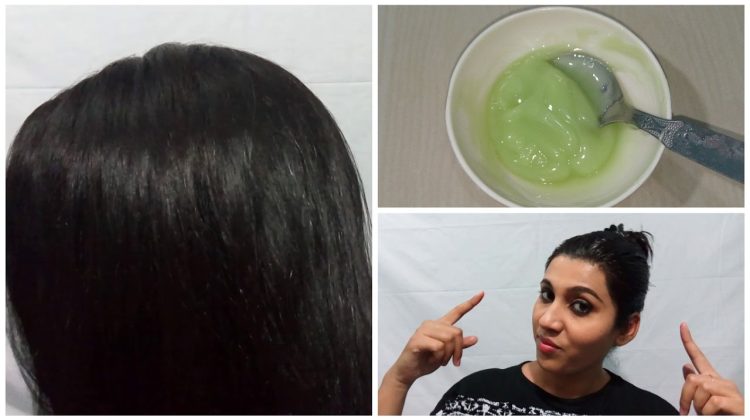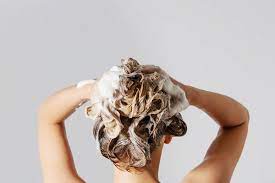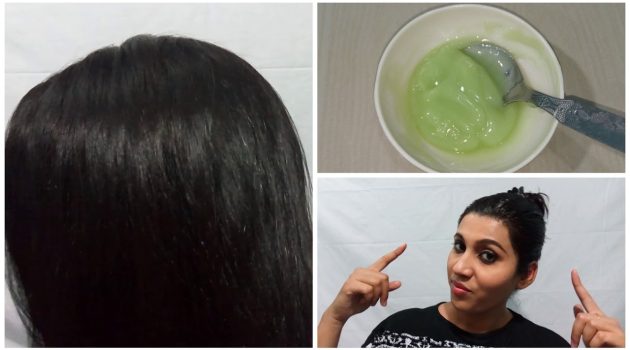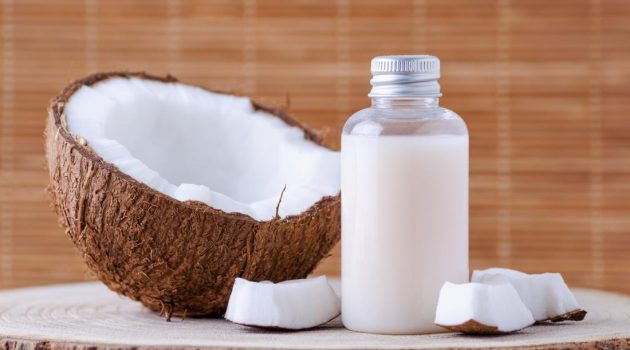
Having dry and damaged hair can be a frustrating experience. Environmental factors, heat styling, chemical treatments, and even everyday wear and tear can take a toll on your locks.
However, there’s no need to despair because there are plenty of effective DIY remedies that can help revive and restore your hair’s health and shine.
We will explore some simple and natural solutions to tackle dryness and damage, leaving you with luscious, nourished tresses

Home remedies for dry and frizzy hair
1. Nourishing Avocado Hair Mask
Avocado is a powerhouse of nutrients that can deeply moisturize and repair dry, damaged hair. Mash half an avocado and mix it with a tablespoon of honey and two tablespoons of olive oil. Apply the mixture to your hair, leave it on for 30 minutes, and then rinse thoroughly. Your hair will thank you for the hydration boost!
2. Coconut Oil Overnight Treatment
Coconut oil is a well-known remedy for dry hair. Warm up some coconut oil and massage it into your scalp and throughout your hair. Wrap your hair in a towel or wear a shower cap and leave it overnight. In the morning, wash your hair as usual, and you’ll be amazed at the softness and shine.
3. Honey and Yogurt Conditioning Mask
Honey is a natural humectant that attracts and retains moisture, while yogurt contains proteins that strengthen the hair shaft. Mix half a cup of yogurt with two tablespoons of honey and apply it to damp hair. Leave it on for 20 minutes before rinsing. This mask will restore moisture and add an incredible softness to your hair.
4. Apple Cider Vinegar Rinse
Apple cider vinegar helps restore the pH balance of the scalp and remove product buildup, leaving your hair healthier and shinier. Mix equal parts of apple cider vinegar and water, and use it as a final rinse after shampooing. Don’t worry; the vinegar scent will disappear once your hair dries.
5. Aloe Vera Gel Soothing Treatment
Aloe vera gel is a fantastic natural ingredient that can soothe a dry, irritated scalp. Apply fresh aloe vera gel directly to your scalp and massage it gently. Let it sit for 15 minutes, then rinse it out. Not only will it moisturize your scalp, but it will also promote hair growth.

Diy remedies for dry and damaged hair at home
6. Egg Yolk Hair Mask
Eggs are rich in proteins and essential fatty acids that can repair and strengthen damaged hair. Whisk two egg yolks and mix them with two tablespoons of olive oil. Apply the mixture to damp hair and leave it on for 30 minutes before rinsing thoroughly. Your hair will feel nourished and revitalized.
7. Rosemary Oil Scalp Massage
Rosemary oil stimulates blood circulation in the scalp, promoting hair growth and combating dryness. Dilute a few drops of rosemary essential oil with a carrier oil like coconut or jojoba oil. Gently massage the mixture into your scalp for a few minutes before washing your hair.
8. Banana and Honey Hair Mask
Bananas are packed with vitamins and minerals that can nourish and moisturize dry hair. Mash a ripe banana and mix it with two tablespoons of honey to form a smooth paste. Apply it to your hair, focusing on the ends, and leave it on for 20 minutes before rinsing. Say hello to silky, hydrated strands!
9. Chamomile Tea Rinse
Chamomile tea has soothing properties that can relieve an itchy, dry scalp. Brew a strong chamomile tea, let it cool, and use it as a final rinse after shampooing. It will add shine and softness to your hair while calming your scalp.
10. DIY Herbal Hair Oil
Creating your own herbal hair oil is a simple and cost-effective way to improve the health of your hair. By selecting specific herbs and oils based on your individual needs, you can customize a hair oil that will nourish and strengthen your locks.
With regular use, you may notice an improvement in shine, texture, and overall manageability. So why not give it a try? Get creative with your ingredients and enjoy the benefits of natural, DIY hair care. Your tresses will thank you!

Frequently Asked Questions
Yes, DIY remedies can be highly effective in treating dry and damaged hair. Many natural ingredients like avocado, coconut oil, and aloe vera possess moisturizing and repairing properties that can revive and nourish your hair.
However, it’s important to note that results may vary depending on the extent of damage and individual hair type.
How often should I use DIY remedies for dry and damaged hair? The frequency of using DIY remedies depends on the specific remedy and your hair’s needs.
Some remedies can be used once a week as a deep conditioning treatment, while others may be incorporated into your regular hair care routine. Listen to your hair and adjust the frequency accordingly.
While it may be tempting to mix various DIY remedies together, it’s generally recommended to use them individually to understand their specific effects on your hair. This way, you can determine which remedies work best for your hair type and address your specific concerns.
Leaving DIY remedies on your hair overnight can provide intensive hydration and nourishment. However, some remedies may require shorter application times. It’s essential to follow the instructions for each remedy to avoid potential issues like product buildup or scalp irritation.
DIY remedies can be used on color-treated hair, but it’s important to be cautious. Some ingredients, such as lemon juice or henna, can interact with hair dye and potentially alter the color. Perform a patch test before applying any DIY remedy to your entire head of colored hair to ensure compatibility.
The time it takes to see results from DIY remedies varies depending on the condition of your hair and the specific remedy used. Some people may notice immediate improvements in hair texture and shine, while others may require consistent and prolonged use for noticeable changes.
DIY remedies are generally safe for all hair types; however, it’s important to consider your hair’s specific needs. For example, some remedies may be more suitable for oily hair, while others are better suited for dry or curly hair. Adapt the remedies to cater to your hair type and concerns.
Yes, you can incorporate DIY remedies into your existing hair care routine. However, it’s important to be mindful of potential ingredient interactions. Avoid using remedies immediately after chemical treatments or when using strong hair products that may counteract the effects of the DIY remedies.

Conclusion
DIY remedies for dry and damaged hair offer a natural and affordable way to nourish and restore your locks.
While the effectiveness and application of these remedies may vary, they can provide significant benefits when used correctly and tailored to your hair’s specific needs.
Experiment with different remedies, be patient, and remember that consistency is key. With proper care and attention, you can revive your hair’s health and achieve the luscious, beautiful hair you desire.
